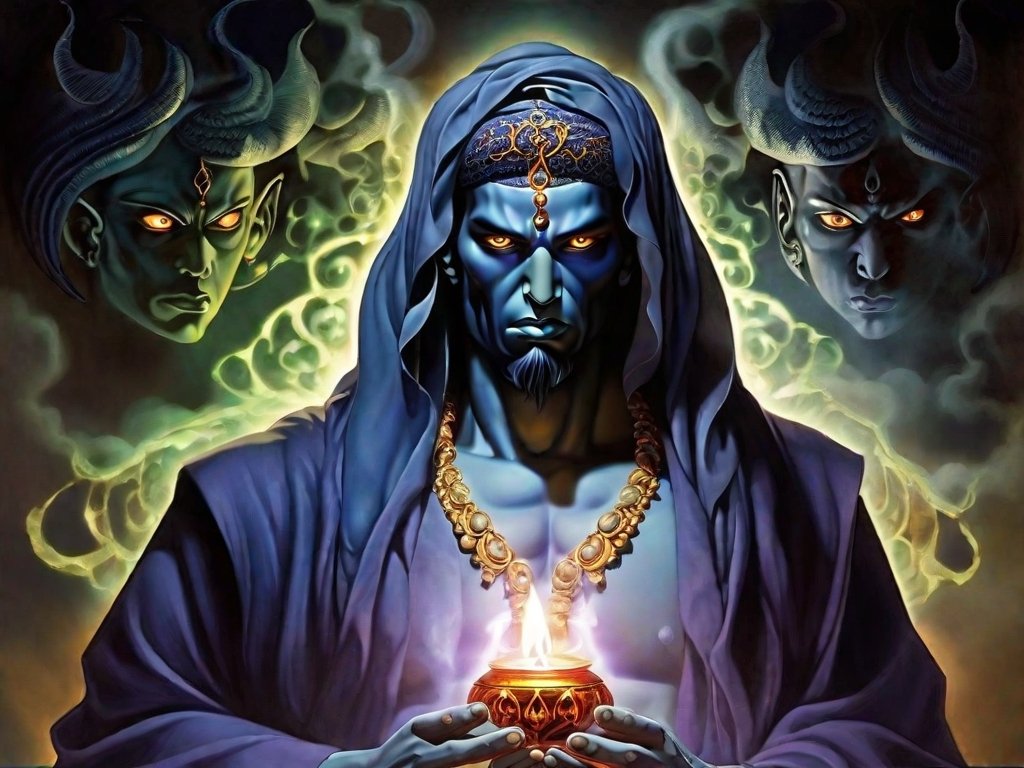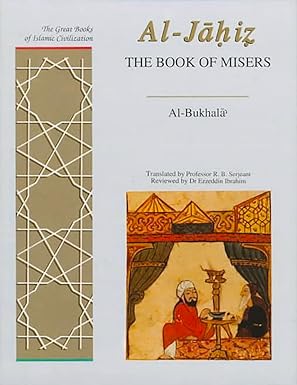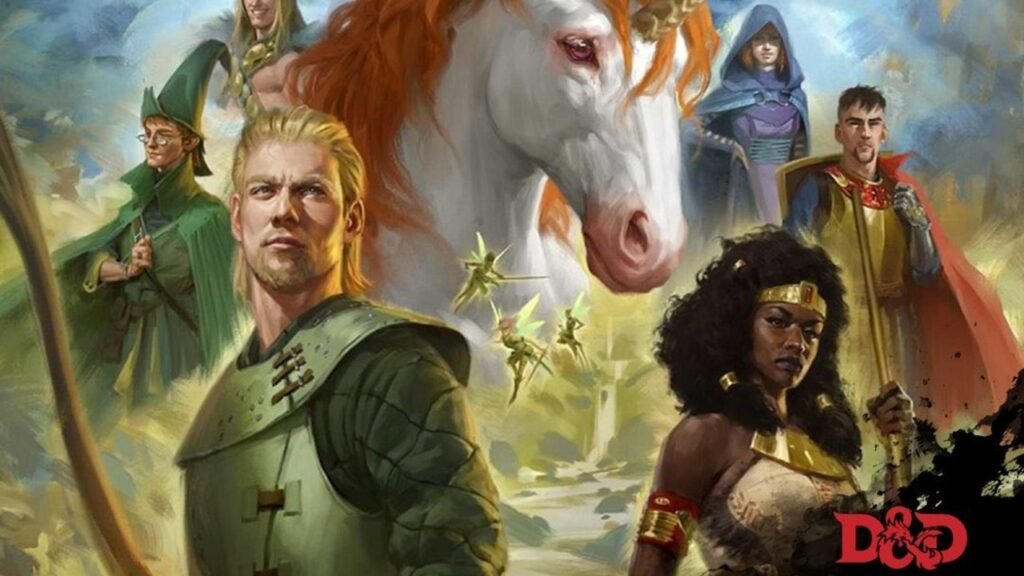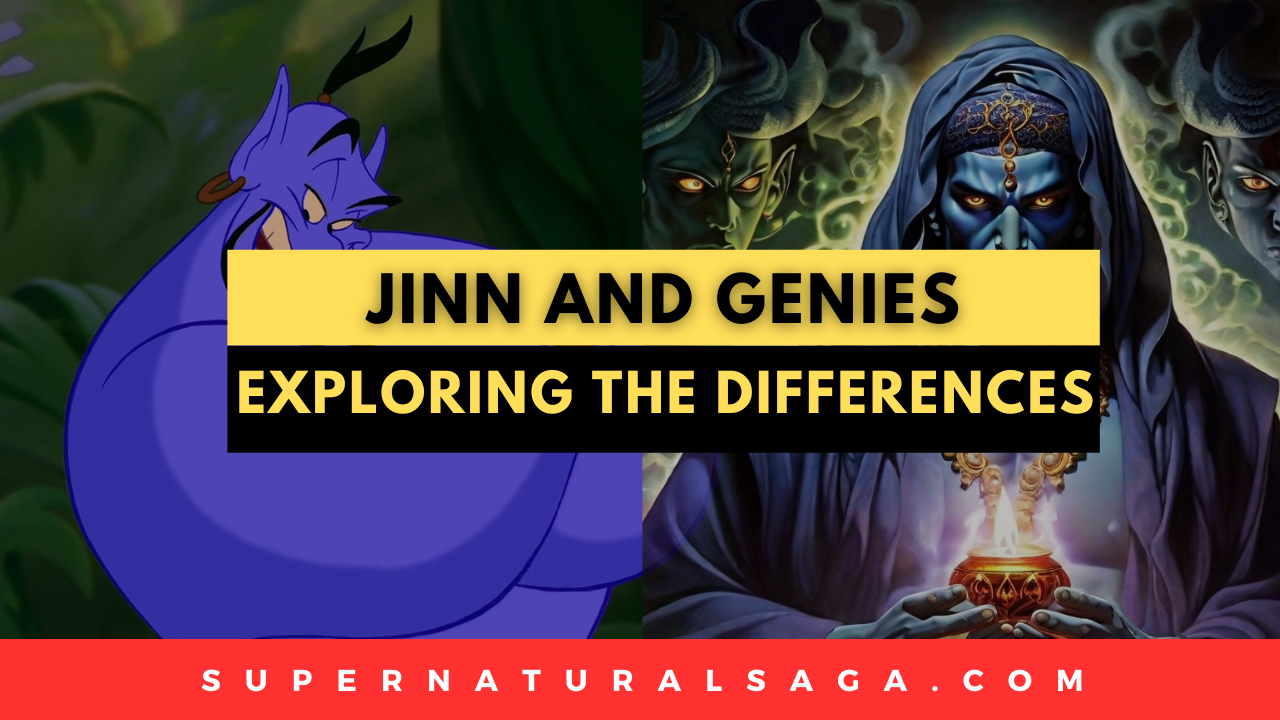In Western popular culture, the terms “jinn” from Islamic theology and “genie” from Middle Eastern folklore are often used interchangeably. However, academic analysis reveals crucial differences between these two classes of magical beings in their origins, attributes, powers, and nature.
This expanded article will dive deeper into distinctions between jinn and genies based on a survey of ancient and medieval literature, religious texts, and scholarly interpretations.
Defining of Jinn
In the Quran and sacred texts of Islam, jinn represent a race of supernatural creatures made from “smokeless fire” before the creation of mankind. Jinn exist in a parallel plane invisible to humans but have the ability to interact with and even inhabit the physical world. Jinn have free will similar to humans and also live in organized clans and tribes with kings, courts and social institutions.

There are many different types of jinn, often associated with various elements. These are:
- Ifrits are linked with fire and considered as the most powerful jinn
- Marid – Water-associated jinn, most rebellious
- Shaitan – Devilish jinn, evil entities
- Ghoul – Earth-associated jinn, flesh-eating
- Jann – Weakest type of jinn
- Si’la – Shape-shifting jinn
- Qareen – Companion jinn
- Arwaah – Air-associated jinn
Jinn are shape-shifters who can take animal or human form.
They have unique magical powers and abilities beyond normal human limitations. However, their powers are subject to the will of Allah. Jinn can be both morally good or evil. Belief in jinn remains common in the Islamic world today.
Pre-Islamic Arabian Mythology Origins
Long before Islam emerged in the Arabian Peninsula, the concept of jinn was deeply embedded in the cultural fabric of ancient Arab society.
These supernatural beings were not mere folklore but represented a fundamental understanding of the unseen world that coexisted with human reality.
In pre-Islamic Arabia, jinn were believed to inhabit wild, desolate places—the vast deserts, rocky mountains, and abandoned ruins that dotted the landscape.
Unlike later Islamic interpretations, these early jinn were often seen as nature spirits, closely connected to specific locations and natural phenomena.
Bedouin tribes would perform rituals and offer sacrifices to appease local jinn before setting up camp or traveling through their territories.
The pre-Islamic jinn were characterized by their shape-shifting abilities, appearing as animals, humans, or hybrid creatures.
They were neither inherently good nor evil but operated according to their own complex social structures and motivations.
This nuanced understanding would later influence Islamic theology, which maintained the concept of jinn as beings with free will, capable of both righteousness and wickedness.
Mesopotamian Influences on Jinn Beliefs
The concept of jinn didn’t develop in isolation but drew heavily from the rich mythological traditions of Mesopotamia, particularly the beliefs surrounding djinni and similar supernatural entities.
Ancient Sumerian, Babylonian, and Assyrian civilizations had long-established traditions of invisible beings that could influence human affairs.
Mesopotamian texts describe entities called “utukku” and “shedu”—protective spirits that could be benevolent or malevolent depending on their treatment by humans.
These beings shared several characteristics with later Arabian jinn: they were invisible to most humans, possessed supernatural powers, and could take various forms.
The Mesopotamian influence is particularly evident in the hierarchical organization attributed to jinn, with different classes and types serving specific functions.
The cross-cultural exchange along trade routes between Arabia and Mesopotamia facilitated the blending of these mythological concepts.
Archaeological evidence from pre-Islamic Arabian sites shows amulets and inscriptions that mirror Mesopotamian protective symbols, suggesting that the belief in controlling or communicating with supernatural beings was a shared cultural practice.
Solomon’s Control Over Jinn from Quranic Stories
The Quranic narrative of Prophet Solomon (Sulaiman) establishing dominion over jinn represents one of the most significant theological developments in jinn mythology.
According to Islamic tradition, Solomon was granted by Allah the unique ability to understand and command all creatures, including jinn, birds, and other beings.
The most famous account describes how Solomon conscripted jinn labor for constructing the Temple in Jerusalem and other monumental projects.
These stories established several key theological principles: jinn, despite their supernatural abilities, remain subject to divine authority; they possess skills and knowledge that can benefit humanity when properly directed; and their service to Solomon demonstrated the prophet’s special status and wisdom.
One particular Quranic story tells of Bilqis, the Queen of Sheba, and how a powerful jinn (identified in later traditions as Ifrit) transported her throne to Solomon’s court in the blink of an eye. This narrative reinforced the idea that jinn possessed abilities beyond human comprehension while remaining servants to righteous authority.
These Solomon narratives became foundational to later magical traditions, where invoking Solomon’s name became associated with commanding supernatural beings.
Medieval grimoires and magical texts throughout the Islamic world and beyond would draw upon these stories to establish frameworks for communicating with or controlling jinn.
Medieval Islamic Scholarly Writings
Islamic scholars during the medieval period developed sophisticated theological and philosophical frameworks around jinn beliefs, transforming folk traditions into systematic religious doctrine.

Notable scholars like Al-Jahiz (9th century) and Ibn Taymiyyah (13th-14th century) wrote extensively about the nature of jinn, their relationship to humans, and their place in Islamic cosmology.
Al-Jahiz’s “Book of Misers” and other works included detailed observations about jinn behavior and their interactions with human society.
He treated jinn as a natural phenomenon worthy of scholarly investigation rather than mere superstition, establishing a precedent for rational inquiry into supernatural beliefs.
Ibn Taymiyyah’s writings on jinn were particularly influential, as he sought to distinguish between legitimate Islamic beliefs about jinn and folk practices that he considered innovations or corruptions.
His work “Essay on the Jinn” became a standard reference, defining orthodox positions on jinn possession, communication with jinn, and the permissibility of seeking their help.
These medieval scholars also grappled with philosophical questions about jinn consciousness, free will, and moral responsibility.
Their discussions influenced legal opinions (fatwas) about issues like marriage between humans and jinn, the validity of testimony from jinn, and the treatment of jinn-related disorders.
Definition of Genies
The English word “genie” derives from French translations of the Arabic jinni referenced in Middle Eastern folk tales, notably One Thousand and One Nights.
In these stories, genies referred specifically to the jinni imprisoned in enclosed vessels or objects like lamps, rings, or bottles. When released from confinement by a human, the genie is obligated to serve their liberator, granting wishes and using their magic powers on their behalf.
Unlike independent jinn, genies in folklore are almost always bound to service and obedience to human masters. They are immensely powerful supernatural servants trapped in confinement until a human releases them.
They then must submit their magical abilities to fulfil the wishes of their liberator, whether benevolent or selfish. Only when their service term finishes can they return to freedom.
Differences Between Jinn and Genies
1. Origins
Jinn have a theological doctrinal basis in Islam, while genies arise more from Middle Eastern and later European fictional works.
2. Nature
Jinn are broad class of beings with free will who live in organized societies. Genies are a specific type of jinni confined to objects and compelled to serve humans.
3. Powers
Jinn have wide-ranging magical abilities tied to their elemental forms. Genies have powers focused on wish fulfillment for their masters.
4. Morality
Jinn exhibit a range of ethics as beings with free choice. Genies are amoral servants focused on gaining freedom, not human notions of good or evil.
In Islamic Texts vs Folklore and Fiction
In canonical Islamic texts like the Quran and hadiths, jinn are discussed seriously as living beings who shared earth with humans, capable of both piety and sin.
Historical Muslim scholars wrote about the nature and abilities of jinn based on theological doctrine. Some medieval grimoires have rituals for summoning jinn, but warn against commanding them in sacrilegious ways.
In folk stories, especially from One Thousand and One Nights, jinni appear more as fanciful plot devices and wish-granting devices. Genies are trapped in magical objects expressly to serve human liberators.
Their immense powers are merely a means for fulfilling human desires, whether for good or ill. The genies exhibit little morality or independent will of their own.
Later fictional Western depictions like Aladdin popularized and exaggerated this image of jinni as wish-granting genies bound to magical lamps.
Also Read: 5 Famous Jinn Stories from Arabian Nights
Their occasional rebelliousness reflects frustration at confinement, not inherent free will. Genies became comedic figures whose powers were rhetorical plot devices or sources of irony in the narrative.
The Linguistic Evolution from “Djinn” to “Genie”
The transformation of “djinn” into “genie” represents a fascinating case study in cultural transmission and linguistic adaptation.
The journey began when medieval Arabic texts containing jinn stories were translated into Latin, Persian, and eventually European languages.
The word “djinn” entered French through medieval Arabic manuscripts, particularly through translations of “The Thousand and One Nights” (Arabian Nights).
French translators in the 18th century, most notably Antoine Galland, adapted the Arabic “jinni” into “génie,” drawing from the Latin “genius”—which referred to protective spirits in Roman mythology.
This linguistic shift carried profound cultural implications. The Latin “genius” concept was fundamentally different from Arabic jinn—Roman genii were typically benevolent guardian spirits associated with specific people or places, lacking the complex moral ambiguity of jinn.
When European readers encountered “genies” in translated Arabian tales, they interpreted these beings through their own cultural lens.
The popularization of “Aladdin and the Magic Lamp” in European literature cemented the image of the wish-granting genie, a concept that diverged significantly from traditional jinn folklore.
This European interpretation emphasized the servitude and wish-fulfillment aspects while minimizing the dangerous, unpredictable nature that characterized jinn in their original cultural context.
Modern Cultural Impact
Disney’s Influence on Western Genie Perception
Disney’s 1992 animated film “Aladdin” fundamentally transformed Western understanding of genies, creating a sanitized, commercialized version that bears little resemblance to traditional jinn.
The film’s portrayal of the Genie—voiced by Robin Williams—as a benevolent, comedic wish-granter established the dominant Western archetype that persists today.
The Disney interpretation stripped away the moral complexity and potential danger associated with traditional jinn, presenting instead a magical being whose primary purpose was to serve and entertain.
This portrayal emphasized spectacle and humor over the nuanced cultural and religious significance of jinn in Islamic tradition.
The film’s massive commercial success—grossing over $500 million worldwide—ensured that this simplified version of genies would become the default reference point for Western audiences.
Subsequent Disney productions, including the 2019 live-action remake, reinforced these characterizations, further cementing the gap between popular Western “genies” and authentic jinn traditions.
The Disney effect extends beyond entertainment into educational contexts, where many Western children first encounter the concept of genies through Disney media rather than cultural or historical sources.
This has created a generation of viewers who understand “genies” primarily through the lens of Western consumer culture rather than their rich Middle Eastern origins.
Jinn in Video Games and Fantasy Media
Modern video games and fantasy literature have embraced jinn/genies as compelling supernatural entities, though often adapting them to fit Western fantasy conventions.
The “Final Fantasy” series features Djinn as powerful summonable creatures, drawing from both Islamic traditions and fantasy gaming conventions.

In “Dungeons & Dragons,” genies are categorized into different elemental types (Djinn for air, Efreet for fire, Marid for water, and Dao for earth), creating a systematic fantasy taxonomy that borrows from but significantly modifies traditional Islamic classifications.

This gaming framework has influenced numerous other fantasy properties and has become a standard way of conceptualizing genies in Western fantasy media.
Video games like “World of Warcraft” and “The Elder Scrolls” series feature djinn-inspired creatures that blend Middle Eastern aesthetics with Western fantasy mechanics.
These portrayals often emphasize the magical power and exotic mystique of genies while removing their cultural and religious contexts.
The gaming industry’s treatment of jinn reflects broader trends in cultural appropriation and adaptation, where elements from one culture are extracted and recontextualized for different audiences. While this has increased awareness of jinn concepts, it has also contributed to misunderstanding and oversimplification of their original significance.
Modern Media Representations
Contemporary television, film, and literature continue to explore jinn themes, though with varying degrees of cultural sensitivity and accuracy.
Shows like “American Gods” by Neil Gaiman attempt to present more culturally nuanced portrayals of jinn, exploring themes of immigration, identity, and cultural preservation in modern contexts.
Recent productions have shown increased awareness of the need for authentic representation.
Films like “The Djinn” (2021) and television series such as “Jinn” on Netflix have attempted to present more culturally grounded portrayals, though these efforts have met with mixed reactions from both Western and Middle Eastern audiences.
Social media has also played a significant role in jinn discourse, with platforms like TikTok and YouTube featuring content creators who share traditional jinn stories, discuss cultural appropriation, and educate audiences about authentic Middle Eastern folklore.
This grassroots education effort represents a counterbalance to commercialized Western interpretations.
The rise of diverse voices in media production has created opportunities for more authentic jinn representations, though the tension between commercial appeal and cultural accuracy remains a significant challenge for creators working in this space.
Psychological Interpretations of Jinn Beliefs
Modern psychology and anthropology have offered various interpretations of jinn beliefs, viewing them through lenses of cultural psychology, religious studies, and social function analysis.
Some researchers interpret jinn beliefs as cultural frameworks for understanding mental illness, unexplained phenomena, and social tensions.
Carl Jung’s concept of the collective unconscious has been applied to jinn mythology, suggesting that these beings represent archetypal figures that emerge across cultures in different forms.
From this perspective, jinn fulfill psychological functions related to understanding the unknown and managing anxiety about forces beyond human control.
Contemporary Middle Eastern psychologists have studied the role of jinn beliefs in mental health treatment, noting how traditional healing practices incorporate jinn concepts alongside modern therapeutic approaches. This has led to culturally sensitive treatment models that respect traditional beliefs while providing effective psychological care.
The persistence of jinn beliefs in modern, technologically advanced societies has prompted research into the social and psychological functions these beliefs serve, including community bonding, moral instruction, and meaning-making in uncertain situations.
Jinn vs Genies: Key Differences
| Aspect | Traditional Jinn | Western Genies |
|---|---|---|
| Origin | Pre-Islamic Arabian/Islamic tradition | European adaptation via translation |
| Nature | Complex beings with free will | Magical servants |
| Moral Status | Can be good, evil, or neutral | Typically benevolent |
| Power | Wide range of supernatural abilities | Primarily wish-granting |
| Relationship to Humans | Independent beings with own agendas | Bound to serve masters |
| Cultural Context | Deeply embedded in religious/cultural beliefs | Entertainment and fantasy |
| Appearance | Shapeshifters, often invisible | Often depicted as turbaned, muscular figures |
| Purpose | Various roles in cosmology and daily life | Wish fulfillment fantasy |
Frequently Asked Questions
What is the difference between a jinn and a genie?
Jinn are supernatural beings from Arabian and Islamic tradition with complex personalities and free will, while genies are the Western adaptation focused primarily on wish-granting and magical servitude.
Are jinn mentioned in religious texts?
Yes, jinn are explicitly mentioned in the Quran and various hadith (prophetic traditions) in Islam, where they are described as beings created from smokeless fire who possess free will like humans.
Can jinn be seen by humans?
According to traditional beliefs, jinn are typically invisible to humans but can choose to reveal themselves or take various forms when they wish to interact with the human world.
Do all cultures have similar supernatural beings?
Many cultures have concepts of invisible spiritual beings with supernatural powers, such as spirits, demons, or nature entities, suggesting this may be a universal human tendency to explain unexplained phenomena.
How do modern Muslims view jinn?
Contemporary Muslim perspectives on jinn vary widely, from literal belief in their existence as described in religious texts to more metaphorical or symbolic interpretations.
Why did Western culture change jinn into genies?
The transformation occurred through translation and cultural adaptation, where European translators and audiences interpreted jinn through their own cultural frameworks, emphasizing aspects that aligned with Western magical traditions.
Are there different types of jinn?
Yes, Islamic tradition describes various categories of jinn, including Ifrit (powerful fire jinn), Marid (water-associated jinn), and others, each with distinct characteristics and abilities.
Do jinn beliefs still exist today?
Jinn beliefs remain active in many parts of the Middle East, North Africa, and South Asia, continuing to influence cultural practices, traditional medicine, and daily life decisions.
Additional Questions
What do jinn look like?
Traditional descriptions vary, but jinn are shapeshifters who can appear as humans, animals, or supernatural forms. They are often described as tall, powerful beings made of smokeless fire.
Are jinn dangerous?
Like humans, jinn are believed to have free will and can be benevolent, malevolent, or neutral. Some traditions emphasize caution when dealing with jinn, while others focus on their potential helpfulness.
How are jinn different from angels in Islam?
While angels are created from light and always obey God, jinn are created from fire and possess free will, allowing them to choose between good and evil like humans.
Can humans marry jinn?
This is a debated topic in Islamic scholarship, with some traditional sources mentioning such unions while modern scholars often discourage or question the validity of human-jinn relationships.
Where do jinn live?
Traditional beliefs place jinn in unseen dimensions parallel to our world, with preferences for wild, abandoned, or liminal spaces like deserts, ruins, and crossroads.
What powers do jinn possess?
Jinn are traditionally believed to have supernatural strength, the ability to fly, shape-shifting capabilities, knowledge of hidden things, and the power to influence physical reality.
Expert Quotes and Academic Sources
“The jinn represent one of the most sophisticated examples of supernatural beings in world mythology, embodying complex theological and psychological concepts that have evolved over millennia.” – Dr. Amira El-Zein, Islamic Studies Scholar
“The transformation of jinn into Western genies demonstrates how cultural transmission inevitably involves adaptation and reinterpretation, often losing essential context in the process.” – Dr. Wen-chin Ouyang, Arabic Literature Specialist
“Understanding jinn beliefs requires recognizing them not as primitive superstitions but as sophisticated cultural frameworks for interpreting reality and managing uncertainty.” – Prof. Michael Muhammad Knight, Anthropologist
These expert perspectives highlight the importance of approaching jinn/genie topics with cultural sensitivity and academic rigor, recognizing both their historical significance and contemporary relevance.
Conclusion
While intertwined in popular culture, jinn and genies have distinct origins and characteristics based in theology versus folklore.
Jinn are independent beings who inhabit their own social plane and exhibit free will, while genies are jinni confined to objects compelled to serve human masters.
Studying original sources illuminates differences obscured by fictional portrayals. A nuanced examination demonstrates the deeper complexities in jinn and genie lore within cultural contexts.

